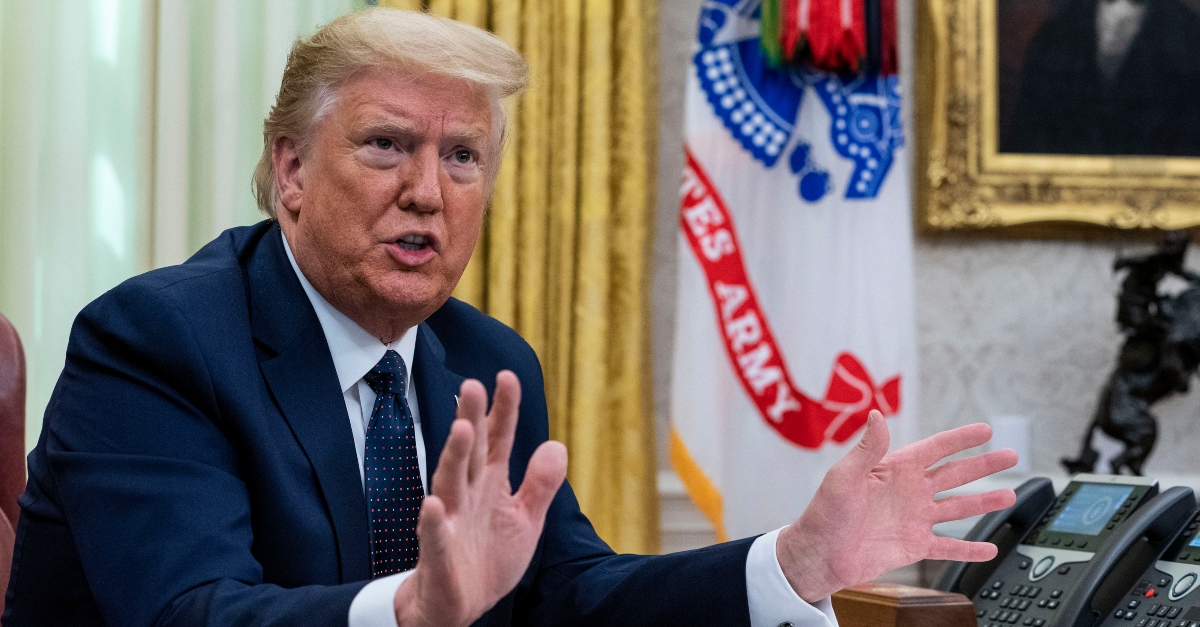
Rep. Devin Nunes (R-Calif.) hit a “dead-end” in his months-long quest to unmask anonymous Twitter accounts. His attorney complained in court on Friday that those efforts were going nowhere absent a serious judicial intervention.
In making the case, Nunes’s attorney Steven Biss even cited a recent executive order signed by President Donald Trump which purports to undermine liability protections for platform-providers like Twitter. But the judge said Trump’s order had no legal impact whatsoever.
Biss argued that Twitter should not qualify for immunity from liability under §230(c) of the Communications Decency Act (CDA) because Twitter allegedly treats Nunes and his fellow travelers unfairly.
“They’re doing more than allowing Liz Mair, the cow and the mom to post a tweet,” Biss said. “They’re censoring, they’re promoting an anti-Nunes agenda, they’re banning conservative accounts and they’re knowingly encouraging it.”
Last summer, Nunes sued Twitter, two satirical Twitter accounts known as “Devin Nunes’ Cow” (@DevinCow) and “Devin Nunes’ Mom” (@DevinNunesMom) as well as Republican Party consultant Liz Mair for defamation for making fun of him on the internet.
The actual legal cases are thin and exceedingly unlikely to succeed–not least because of the vertiginously high standards required to prove defamation in U.S. courts, especially against public figures; but doubly so because satire is constitutionally-protected speech that American jurisprudence has given some of the strongest protections time and time again whensoever public individuals have had the bad instincts to sue over their humorous public humiliations.
The lawsuits aren’t really going anywhere and Biss, as well as his client, almost certainly know that–which is why it appears the legal controversy has shifted attention to the CDA’s §230.
Twitter recently moved to dismiss the case on §230 grounds–exactly the sort of reason the statute was developed for in the first place. Biss asked for a different interpretation of the court system’s long-held understanding of the decades-old law based on his opinion that conservatives are not treated fairly.
“I don’t know of any requirement in the law that says these sites have to be neutral,” Virginia Circuit Court Judge John Marshall said. “Just because you don’t like it and asked to have them take it down, doesn’t mean they’re liable if they don’t take it down.”
Marshall similarly rubbished the citation to Trump’s executive order after Biss attempted to cite the policy declaration in support of his client’s likely untenable legal position.
“[T]hat doesn’t change the law,” the judge noted.
The 45th president issued the executive order in late May after Twitter fact-checked one of his tweets which spread misinformation about vote-by-mail and put a content advisory on another tweet for “glorifying violence” amid racial justice protests sparked by the killing of George Floyd by Minneapolis police..
Executive orders are often directives that instruct administrative agencies to shift gears in order to focus on an administration’s preferred policy outcomes. Trump’s order, in fact, does some of this.
“To advance the policy described in subsection (a) of this section, all executive departments and agencies should ensure that their application of section 230(c) properly reflects the narrow purpose of the section and take all appropriate actions in this regard,” the order notes before instructing other officials to propose new rules.
But minor agency tweaks and attempts at rulemaking for the Federal Communications Commission are not the same thing as rewriting the law itself.
Only Congress can do that.
“Mr. Biss is asking the court to enact a new law,” Twitter attorney Patrick Carome noted. “And if he wants a new law, well, Mr. Nunes is a congressman.”
[image via Doug Mills/The New York Times]